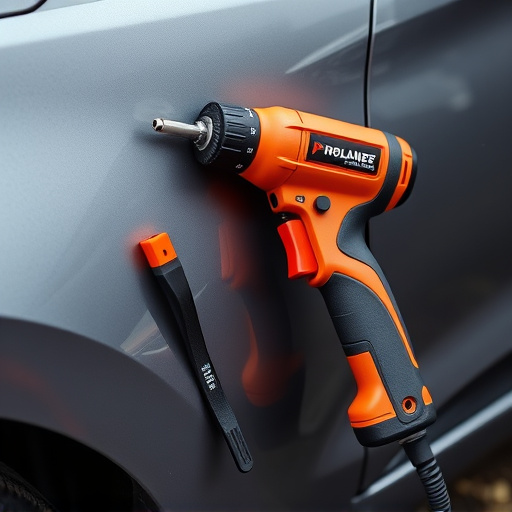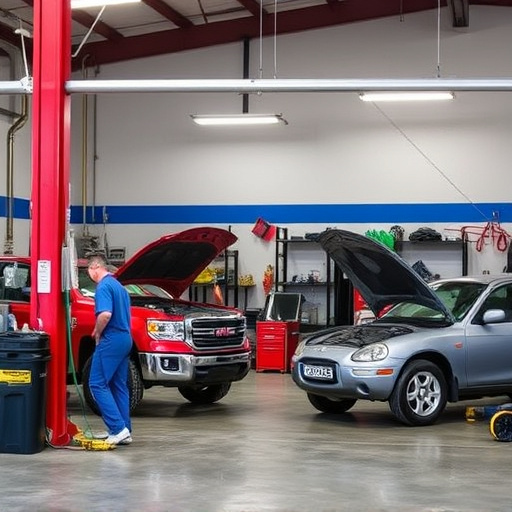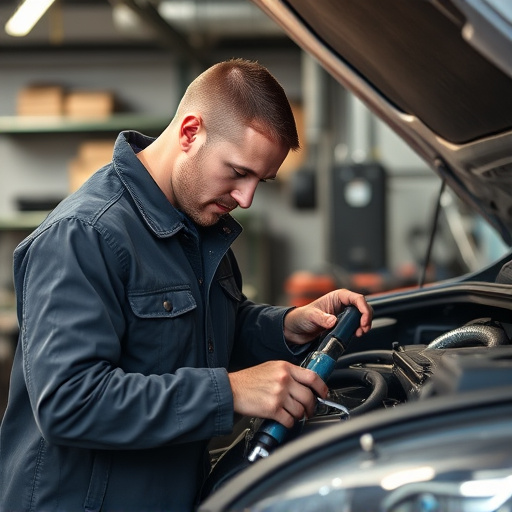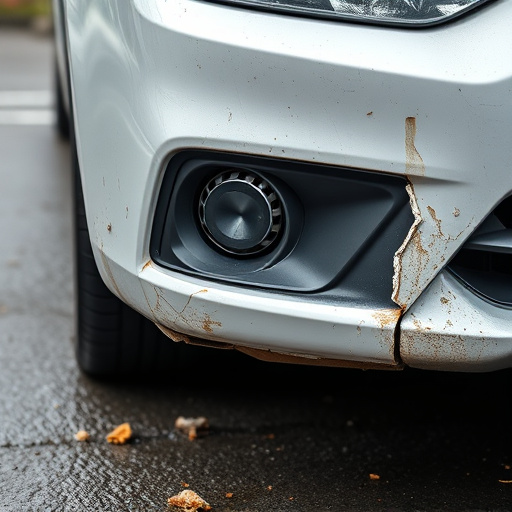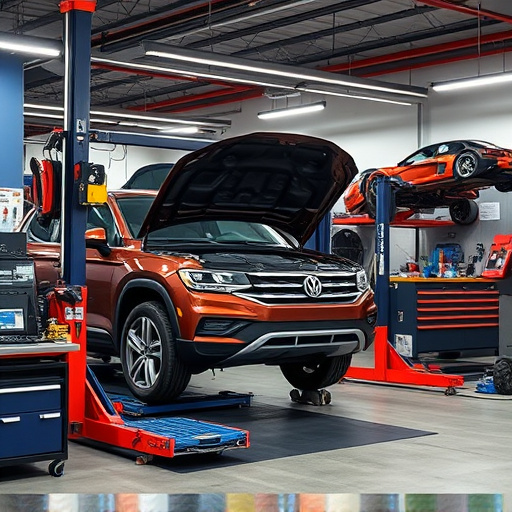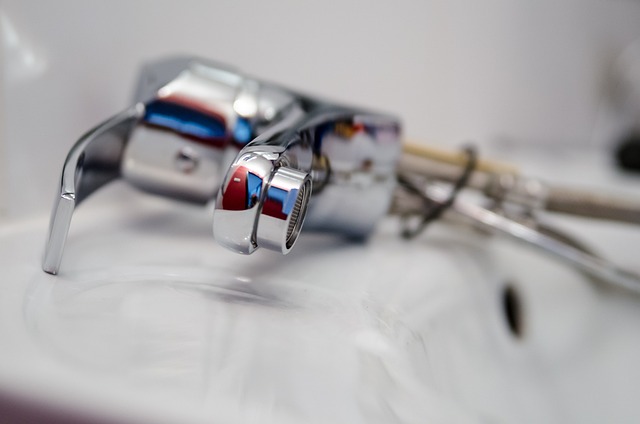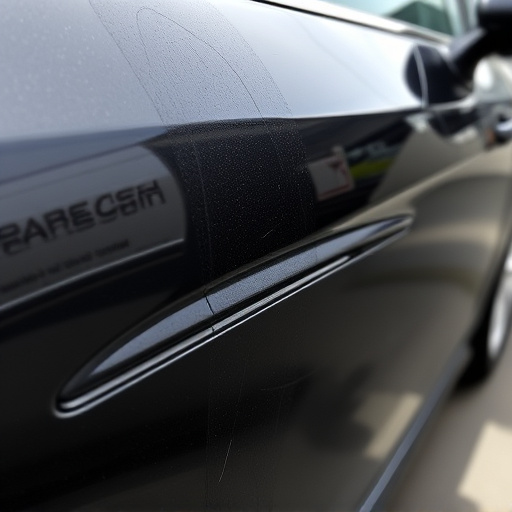Plastic welding technology revolutionizes auto repair, offering durable bonds and lightweight materials for faster, more efficient repairs with reduced environmental impact, minimizing waste and emissions while enhancing structural integrity and customer satisfaction in collision repair and body restoration.
Plastic welding technology is revolutionizing auto repair methods, offering a new era of precision and innovation. This advanced technique has transformed the automotive industry by providing stronger, more lightweight solutions while reducing waste and promoting sustainability. Understanding this technology unlocks a future where vehicles are not only repaired efficiently but also built with enhanced durability. This article delves into the advantages and environmental impacts of plastic welding, highlighting its role as a game-changer in modern auto repair.
- Understanding Plastic Welding Technology: A New Era in Auto Repair
- Advantages: Enhanced Durability and Lightweight Solutions for Vehicles
- The Environmental Impact: Reducing Waste and Promoting Sustainability
Understanding Plastic Welding Technology: A New Era in Auto Repair
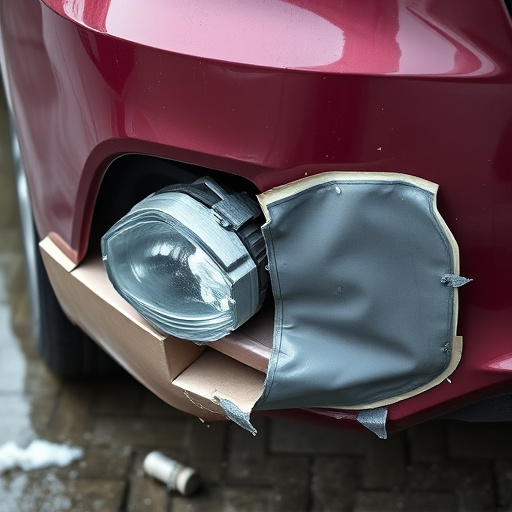
Plastic welding technology has ushered in a new era in auto repair, revolutionizing collision repair services and car body restoration processes. This advanced technique enables precise and durable bonding of plastic components, which are increasingly prevalent in modern vehicles. Traditional methods often struggle with the intricate shapes and diverse materials found in contemporary automotive design, making plastic welding an indispensable asset for auto body services.
By employing specialized equipment and expertise, technicians can now expertly handle complex repairs involving car body restoration. This includes fixing cracked or damaged panels, integrating new parts seamlessly, and ensuring structural integrity without compromising aesthetics. The versatility of plastic welding technology allows for faster turnaround times and higher quality outcomes in auto repair, setting new standards for efficiency and customer satisfaction within the industry.
Advantages: Enhanced Durability and Lightweight Solutions for Vehicles
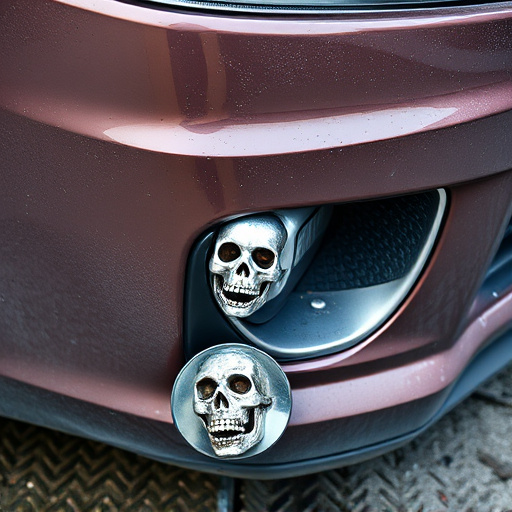
Plastic welding technology has revolutionized auto repair methods, offering significant advantages that traditional techniques cannot match. One of the most notable benefits is the enhanced durability it provides. Modern plastic welding allows for stronger bonds between different types of plastics used in vehicle manufacturing. This increased strength ensures that repairs are as robust as the original parts, prolonging the life of vehicles and reducing the need for frequent replacements.
Additionally, this technology enables the creation of lightweight solutions for various vehicle components. Plastic welding can incorporate lighter-weight plastic materials, contributing to improved fuel efficiency and reduced environmental impact. In collision center or body shop services, this translates into faster repair times, lower material costs, and more eco-friendly practices, without compromising on the quality and safety of vehicle repairs.
The Environmental Impact: Reducing Waste and Promoting Sustainability
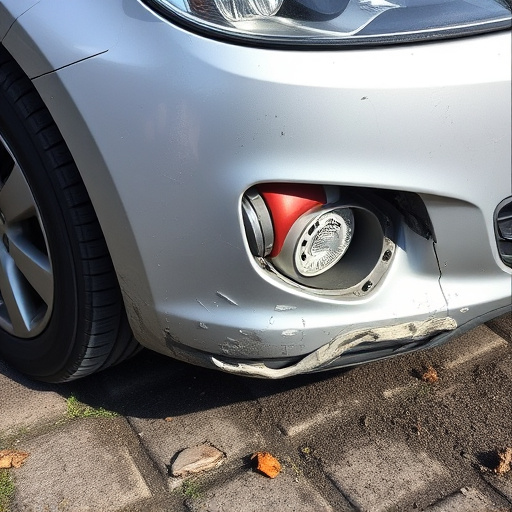
Plastic welding technology plays a pivotal role in minimizing the environmental footprint of auto repair. Traditional methods often relied on substantial material waste, contributing to landfilled debris and greenhouse gas emissions. However, with plastic welding, technicians can precisely join and mend automotive components, reducing the need for replacement parts. This not only curtails the amount of raw materials consumed but also diminishes associated manufacturing pollution.
Moreover, the efficiency gains from plastic welding lead to less energy usage and lower carbon emissions during car repair services. This sustainability-focused approach not only benefits the planet but can also translate into cost savings for both repair shops and customers, as well as contribute to the overall goal of eco-friendly vehicle maintenance, including effective car dent removal processes.
Plastic welding technology is revolutionizing auto repair methods, offering enhanced durability and lightweight solutions while also promoting sustainability by reducing waste. This innovative approach, with its precise and efficient welds, marks a significant shift in the automotive industry. By embracing these advancements, repair shops can provide superior vehicle restoration, contributing to both improved performance and environmental stewardship.

